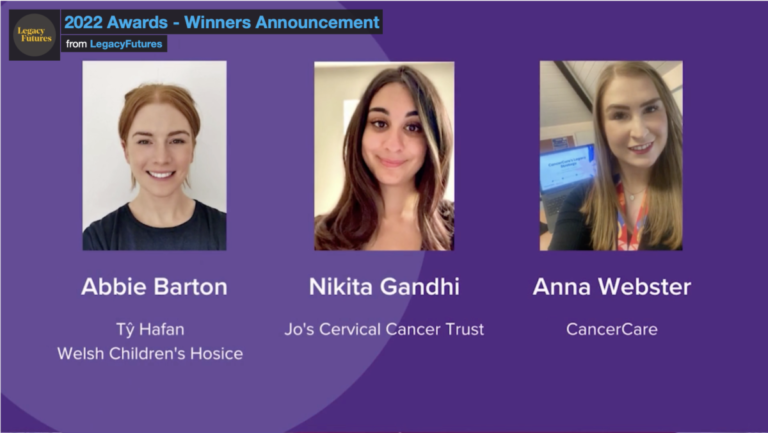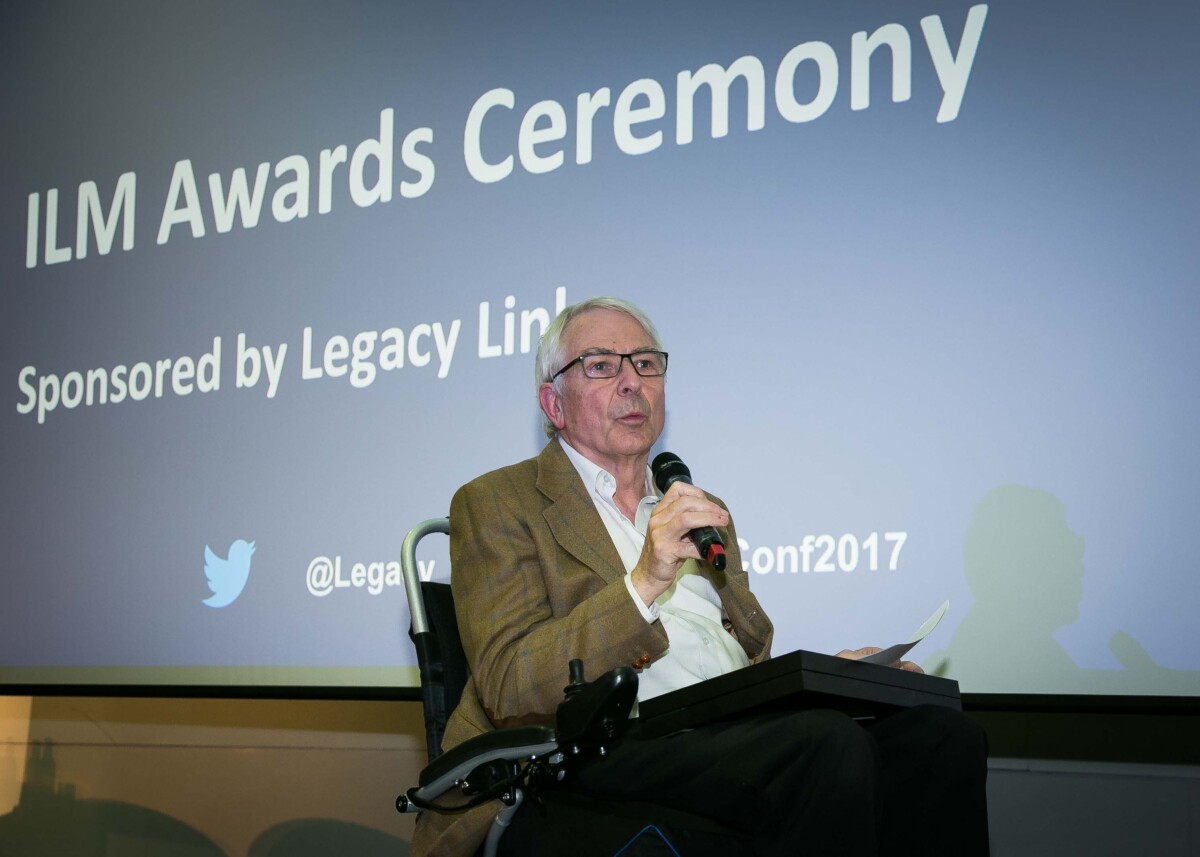Legacy fundraisers from Tŷ Hafan & CancerCare among 2022 Legacy Futures Awards winners

Five UK legacy fundraisers have won this year’s Legacy Futures Awards, while a campaign from Deakin University has won the innovation category.
The awards opened for entries in January this year, and celebrate new and emerging talent in the legacy and in memory field. Winners are selected by an independent panel of legacy experts.
As well as the Innovation Award, there are two categories for practitioners; the Future Leader Award – for those who are new to a legacy or in-memory giving role – and the Crispin Ellison Bursary Awards – for excellence in legacy administration and management.
Advertisement
The winners:
Future Leader Award – Abbie Barton at Tŷ Hafan, Nikita Gandhi at Jo’s Cervical Cancer Trust and Anna Webster at CancerCare.
The judges – Emma Bowles at Porchlight (a 2021 winner) and Lena Vizy of Amnesty International Netherlands – felt that each of these future leaders demonstrated exceptional fundraising abilities and strategic thinking, and that they would benefit from the six-month mentorship offered to award winners.
Barton’s achievements in the growth of legacy enquiries, her work on the “Lifeline Campaign” and her passion for the role were particularly singled out. With Gandhi, the judges remarked on her data and evidence-led fundraising approach, and her capacity for spotting opportunities for further development and growth, along with her use of tools and resources, and the growth of Jo’s Cervical Cancer Trust tribute pages. At CancerCare, they commented on Webster’s passion and dedication as a sole individual giving fundraiser for a small charity, dedicated to improving income generation both at CancerCare and across the sector.
Crispin Ellison Bursary Award – Mary Taylor Lewis and Emma Newell
In memory of former Legacy Link Director Crispin Ellison, this award – selected by judges Carolyn Jones at the University of Liverpool (2021 award winner) and Meenaxi Patel at the British Heart Foundation – celebrates exceptional individuals working or volunteering in legacy administration and management in the UK. The winners, announced at the ILM Conference this month, are Mary Taylor Lewis and Emma Newell, both of whom receive a training package from the Institute of Legacy Management, funding the cost of the Certificate in Charity Legacy Administration (CiCLA).
Taylor has only been in her role at the University of York for 6 months and is the sole person responsible for legacy giving. The judges commented on her dedication and commitment to ensuring that legacy pledgers are continually looked after and stewarded. Similarly, Newell hit the ground running in her role of legacy fundraiser at Claire House Children’s Hospice, where their legacy income continues to grow. Judges commented on her passion and enthusiasm, which instils legacy confidence across Claire House Children’s Hospice, and inspires their legacy supporters.
Innovation Award – Deakin University
Deakin University won the Innovation Award for its inaugural digital acquisition campaign for legacies. Approaching their alumni community and encouraging them to consider leaving a gift in the Will was not only a first for Deakin, but for any Australian university.
Recognising that the cost of Will-making can be a barrier, they offered a cost-effective online Will service, which led to over 100 completed Wills and several alumni writing Deakin into their Will. The Deakin fundraising team shared their learnings with peers, setting up a Gifts in Wills group of 30 universities across the country and 40 higher education professionals.
The judges of the Innovation Award – Lucinda Darby of Remember A Charity and Dr Claire Routley of Legacy Voice – highlighted Deakin’s planning as well as the impact the campaign had on the wider sector with the formation of the Australian Gifts In Wills network. The prize is a design thinking workshop with Legacy Voice.
Ashley Rowthorn, CEO of Legacy Futures, said:
“This is innovative not just because universities in Australia are yet to really get to grips with gifts in wills, but also because a young university – not even 48 years old – is showing that they can promote gifts in wills, they can be relevant and use new technology to reach out to a new audience.”




